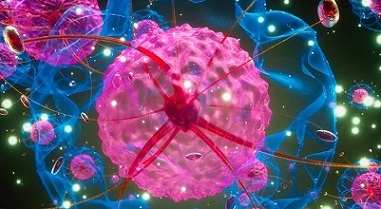Study Reveals Significant Properties Of NSP4 T492I Mutation Found In Almost All Of The New SARS-CoV-2 Sublineages Currently In Circulation
Thailand Medical - NSP4-T492I Mutation - SARS-CoV-2 Sub-lineages Jul 04, 2023 1 year, 9 months, 2 weeks, 2 days, 10 hours, 24 minutes ago
T492I Found To Increase SARS-CoV-2 Infectivity By Altering Non-Structural Protein Cleavage And Also Causes Changes In Tropism And Pathogenicity
Thailand Medical: A recent study conducted by researchers from Chongqing University in China and Freie Universität Berlin in Germany has uncovered important insights into the NSP4 T492I mutation found in the majority of new SARS-CoV-2 sublineages. This mutation has been shown to enhance the infectivity of the virus, alter its tropism and pathogenicity, and affect the cleavage of non-structural proteins.

The SARS-CoV-2 virus, responsible for the global COVID-19 pandemic, has been evolving rapidly due to its ability to mutate. Various variants of concern (VOCs) have emerged, such as the Delta and Omicron variants, which have caused significant waves of infections worldwide. The T492I substitution within the non-structural protein 4 (NSP4) has been identified in these variants and is believed to play a crucial role in their transmissibility and adaptability.
Through in silico analyses and competition experiments in hamster and human airway tissue culture models, the study team confirmed that the T492I mutation increases the transmissibility and replication capacity of the virus. They also found that the mutation enhances the virus's ability to evade host immune responses.
Mechanistically, the T492I mutation improves the cleavage efficiency of the viral main protease NSP5, leading to increased production of various non-structural proteins processed by NSP5.
Additionally, the study revealed that the T492I mutation suppresses the production of viral-RNA-associated chemokines in monocytic macrophages, which may contribute to the attenuated pathogenicity observed in Omicron variants. This suggests that the mutation not only increases the virus's infectivity but also reduces its virulence.
The evolutionary trajectory of the T492I mutation was traced back to early variants in 2021 and subsequently observed in the Delta, Omicron, Lambda, and Mu lineages. The mutation reached almost 100% frequency in all Omicron sub-lineages, indicating its significance in the fitness and transmission of SARS-CoV-2.
The researchers also discussed the impact of the T492I mutation on viral tropism. They found that the mutation directs the virus toward the upper respiratory tract, where angiotensin-converting enzyme 2 (ACE2) receptors are abundantly expressed. This may result in increased viral productivity in the upper airway epithelium and reduced replication in the lungs, where ACE2 expression is scarce.
The altered tropism could lead to shorter incubation periods and higher transmission rates.
Thailand Medical News would like to add that while all the newer SARS-CoV-2 sub-lineages in circulation are causing more asymptomatic and mild symptomatic infections in the majority of the populations globally except for those in the vulnerable groups, it should not be assumed that these new sub-lineages are actually mild. They are in fact emerging as ‘perfect silent killers’ as they are much adapt at disarming the human immune responses, paving the
way for viral persistence in various compartments of the human host where they can also create compartmentalized reservoirs devoid of major immune disturbances but with ongoing chronic inflammation and also disruption of various cellular pathways and the destruction of various cells and tissues. The human host will eventually be faced with more worrisome medical and health conditions with some leading to fatal outcomes such as heart failures, strokes, organ failures, sepsis, cancer etc.
In conclusion, the NSP4 T492I mutation plays a crucial role in the transmissibility, adaptability, and pathogenicity of SARS-CoV-2 variants, including Delta and Omicron. The mutation enhances viral infectivity by affecting non-structural protein cleavage and modulating immune responses. Moreover, it leads to a shift in viral tropism toward the upper respiratory tract. While the T492I mutation increases the virus's ability to spread, it also appears to reduce its virulence.
Further research is needed to fully understand the mechanisms underlying these observations and to develop effective intervention strategies against SARS-CoV-2.
The study findings were published in the peer reviewed journal: Cell Host And Microbe.
https://www.cell.com/cell-host-microbe/fulltext/S1931-3128(23)00253-6
For the latest
SARS-CoV-2 Research, keep on logging to
Thailand Medical News.
